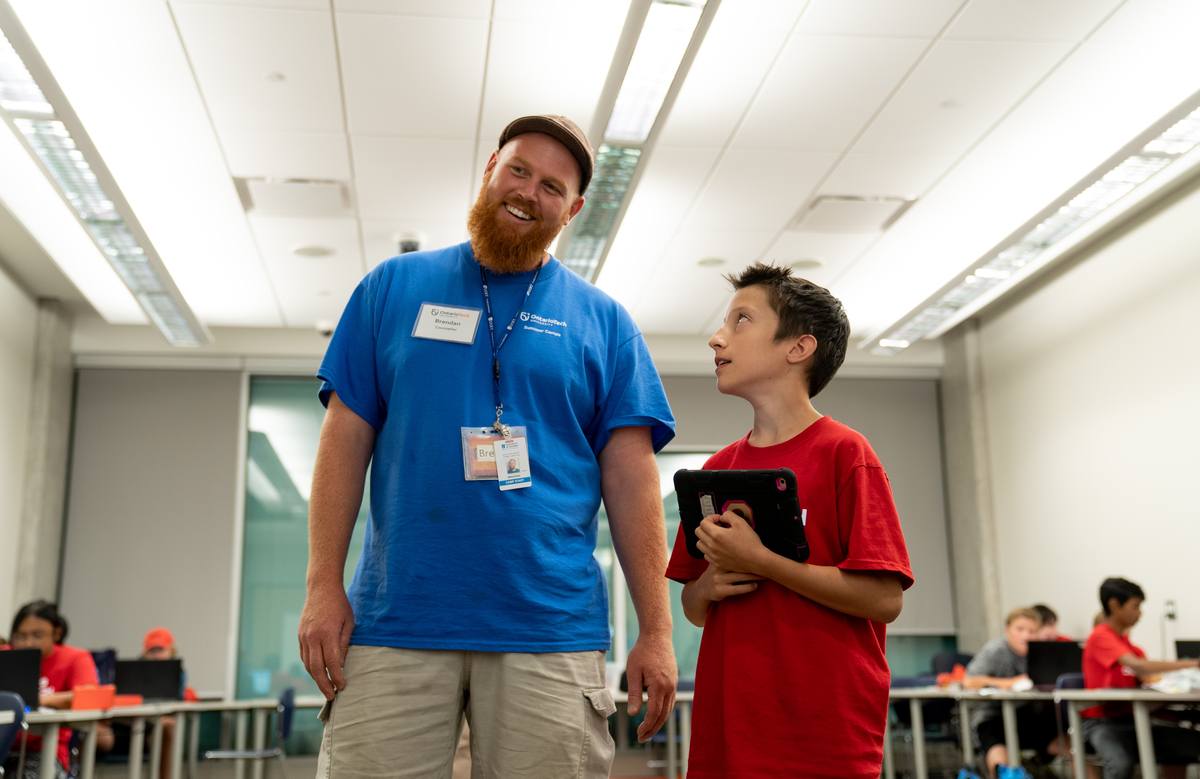
Innovation through failure: Nurturing a positive failure culture through soft skills
By: Sheldon Kawarsky (Continuous Learning Instructor)
Have you ever noticed that failure doesn’t always have to mean defeat? In the volatile and ever-changing business world, innovation often comes in the most unexpected of places. To truly foster an innovative environment where employees can use challenges as opportunities for growth, employers must create a positive culture around mistakes and turn them into lessons learned.
But how do you encourage a learning mindset among your staff to make this happen? Introduce soft skills training—an essential tool for creating a positive failure culture by helping workers build emotional resilience through problem-solving strategies that can be applied both in the workplace and beyond.
What is a positive failure culture?
It’s easy to view failure as negative in today’s corporate environment. However, a positive failure culture in the workplace can actually be a powerful tool for growth and development. This type of culture encourages employees to take risks and innovate rather than fear the consequences of failure.
It aligns with the “growth mindset” concept introduced by Stanford University psychologist Carol Dweck, in which individuals believe their abilities can be developed through hard work and dedication.
Instead of being disciplined or criticized for making mistakes, employees are supported, encouraged to learn from their failures, and persuaded to develop new skills. A good failure culture can ultimately foster a more creative, transparent, and resilient workplace where employees are empowered to push boundaries and drive change.
What are the benefits of a positive failure culture?
Companies can foster employee engagement and build more resilient teams by creating a positive failure culture. Let’s review these benefits and others in detail.
-
Increased innovation and creativity
By removing the fear of failure, employees are more likely to experiment with new ideas and find creative solutions. This experimentation can lead to improved products, services, and processes that allow a company to break new ground in its respective field or industry.
-
Improved learning and development
When mistakes are seen as opportunities for growth rather than failures, employees become more comfortable with taking on challenging tasks. This comfort increases their learning and development as they gain experience in problem-solving and critical thinking skills. It also encourages them to take ownership of their work, increasing motivation and productivity.
-
Increased resilience and perseverance
Employees learn how to pick themselves up after a setback or mistake instead of giving up or feeling defeated. This reorientation creates an environment where people are willing to try again even if they fail the first time around, which leads to greater success in the long run.
-
Improved morale and engagement
A positive failure culture can also improve morale by creating an atmosphere of trust between managers and employees. Employees feel supported when they know their manager won’t discipline them for making mistakes or trying something new, which leads to increased engagement with their work and higher job satisfaction overall.
-
Increased competitive advantage
Companies gain a competitive advantage over their competitors by encouraging creativity, innovation, resilience, perseverance, morale, and engagement in their workforce. These traits are essential for staying ahead in the modern-day business world, where companies must continually adapt to survive.
How can soft skills help to nurture a positive failure culture?
So, how can soft skills aid in fostering this type of environment? Soft skills training, specifically in interpersonal and people skills, can be valuable in developing a positive failure culture.
Effective communication skills training, for example, allows for open and honest conversations about failures, while interpersonal skills training helps workers maintain relationships and avoid blame-shifting.
-
Communication skills
Clear and effective communication encourages open dialogue between team members, which can help to nurture an environment where mistakes are seen as learning opportunities rather than failures. Additionally, good communication can help to ensure that everyone on the team is on the same page and understands their roles and responsibilities.
-
Adaptability
Adapting quickly and effectively to changing circumstances is another essential skill for nurturing a positive failure culture. When things don’t go according to plan, thinking on your feet and coming up with creative solutions can be invaluable in helping the team stay focused and motivated.
-
Leadership skills
Good team leadership skills are also critical. Leaders should be able to recognize mistakes as learning opportunities, provide constructive feedback, and motivate their team members to keep trying even when they fail.
-
Teamwork skills (team collaboration)
Working well together as a team is a must. Team members should be able to trust each other, support each other’s ideas, and collaborate effectively to achieve success together rather than individually.
-
Resilience
Resilience is an important soft skill for anyone who wants to nurture a positive failure culture within their organization or team. Resilience means being able to bounce back from setbacks quickly and not give up when faced with challenges or obstacles along the way.
-
Conflict management
Conflict management involves learning how to resolve disagreements between people without resorting to arguments or hurt feelings. This skill encourages employees to view disagreements as opportunities for collaboration rather than sources of stress and tension.
-
Constructive feedback
Constructive feedback involves providing honest, actionable advice to help employees improve their performance. It should be delivered in a supportive and encouraging way rather than judgmental or critical. This type of feedback allows employees to learn from their mistakes without feeling discouraged or overwhelmed.
-
Empathy
Empathy allows employees to understand each other’s mistakes more and view them as opportunities for progress rather than points of contention. It also helps create an environment where employees feel comfortable taking risks and trying new things without fear of criticism or ridicule from their peers.
-
Problem-solving skills
Developing problem-solving skills is essential for creating a positive failure culture. This development involves teaching employees how to identify problems, analyze them, develop solutions, and implement those solutions efficiently and effectively. Equipping employees with the tools they need to navigate challenging situations successfully can help create an environment where failure is seen as an opportunity rather than a hindrance.









